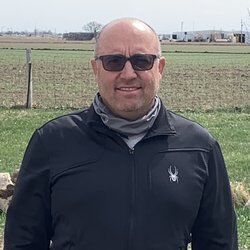Work requirements for welfare don’t work; focus on skill building instead

On this we can all agree: Employment is important – not only to provide for one’s family but also to generate the pride we all feel in an honest day’s work.
As many people as possible should join the workforce, particularly here in Denver where employers are desperate for employees amid historically low unemployment and a booming economy.
Bringing recipients of federal aid into the workforce is a worthy goal.
But research and experience in the field show us that imposing work requirements for welfare recipients is not an effective means to achieve this goal.
Simply put, work requirements do little to connect disadvantaged workers to jobs that allow them to support their family and escape poverty. Work requirements also cause unintended consequences, including substantial administrative burdens and costs for government agencies.
President Trump’s budget proposal calls for creating or expanding work requirements for recipients of federal housing aid and food assistance programs (SNAP). This comes just after the federal government invited states to apply for waivers that allow them to impose work requirements on Medicaid recipients (as two states already do).
Based on 35 years of experience, the Center for Work Education and Employment (CWEE) knows what works to bring disadvantaged workers into the economic mainstream and break the cycle of poverty: Equip them with the right skills to meet local employers’ needs.
That’s why CWEE maintains relationships with more than 150 local employers that help us connect graduates of our program to employment opportunities that offer a family-supporting wage.
We should not waste limited public resources on creating systems to implement and track compliance with work requirements. Rather, we should direct our efforts toward giving all workers the skills to compete and succeed in the 21st century workplace.
Welfare – or Temporary Assistance for Needy Families (TANF) as the program is officially called – has long required participants to work or attend job-training programs. As such, the TANF program offers insights into the implications of adding a work requirement to other federal support programs.
First, there are significant costs associated with implementing work requirements, including the IT infrastructure to track the new regulations and the personnel to oversee them. Two decades ago, New York City spent nearly $20 million implementing work requirements following welfare reform and the onset of the new TANF program. In Tennessee, the price of implementing work requirements exceeded $70 million.
Research finds that most TANF enrollees work regardless of whether they are required to do so. Similarly, among adults receiving Medicaid, nearly six in 10 nonelderly adults are working – without being required to. Further, work requirements can be counterproductive as they encourage workers to take low-wage jobs, rather than focusing on training for higher-wage careers that enable them to support a family.
Many people who receive federal assistance but are not working face barriers to employment that work requirements do nothing to address. These barriers may include a physical or mental health condition, limited education, lack of housing or child care, and insufficient access to transportation. Effective TANF programs across the county have evolved to help enrollees overcome these barriers, but they are successful only if there are the financial resources to fund these supportive services.
What the experience with TANF shows us is that the agencies that administer Medicaid, food stamps and federal housing programs are under-resourced to meet the needs of their non-working program participants in a manner that would enable these individuals to succeed in employment.
Instead of imposing costly and burdensome new regulations on already strapped government agencies, let’s focus on training Denver’s disadvantaged workers to meet the needs of the region’s employers who are driving our economy forward.













